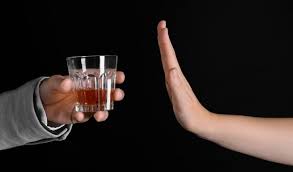…by Kate Benet…
Marc here: Perhaps the one question I get asked most often is whether it’s possible to go back to safe use (of alcohol or other substances) after being addicted. So, after reading Kate’s story, please reserve half a minute to read my comments at the end. It seems crucial to embed the diversity of people’s experiences in a general framework that can make sense of them all.
………..
Now, Kate:
Approaching my 25-year anniversary of sobriety in early September 2019, I had thought for weeks, if not months, about whether I could now drink moderately. I had been sober way more years in my life than I had spent drinking (now 57 years old). More importantly, my life in the past 25 years had changed dramatically for the better. I had worked hard for years to create a stable and rewarding life.
 I read a lot on the internet about whether moderate drinking was possible after a long abstinence. I read the posts on this blog with great interest. I talked through my thought process with my husband, a normal drinker, and he was supportive of my wish to be able to
I read a lot on the internet about whether moderate drinking was possible after a long abstinence. I read the posts on this blog with great interest. I talked through my thought process with my husband, a normal drinker, and he was supportive of my wish to be able to  enjoy a nice glass of wine or good craft beer now and then. This is what I had missed over the years. Those certain occasions when it is so nice to be able to add alcohol to the experience: a fine dinner or a sunny afternoon relaxing on the porch. He was supportive — whether I had a drink or did not, whether I tried it and continued, or tried it and stopped.
enjoy a nice glass of wine or good craft beer now and then. This is what I had missed over the years. Those certain occasions when it is so nice to be able to add alcohol to the experience: a fine dinner or a sunny afternoon relaxing on the porch. He was supportive — whether I had a drink or did not, whether I tried it and continued, or tried it and stopped.
 Last Saturday night I took the plunge and had one glass of red wine. Waves of fear washed over me. The experience was surreal. Who was I? What was this thing that I was doing? The wine tasted fantastic. I could feel the effect but, amazingly, I did not like it. This was in stark contrast to how I used to experience alcohol, thinking the taste wasn’t too bad and the effect itself was incredibly nice.
Last Saturday night I took the plunge and had one glass of red wine. Waves of fear washed over me. The experience was surreal. Who was I? What was this thing that I was doing? The wine tasted fantastic. I could feel the effect but, amazingly, I did not like it. This was in stark contrast to how I used to experience alcohol, thinking the taste wasn’t too bad and the effect itself was incredibly nice.
 One week after this experience I can say this. The unleashing of craving from this one drink after 25 years of absolute sobriety was beyond belief. It was like the 25 years had never happened. The portal to a horrible, frightening feeling had been opened. I had the sense of a dual persona hovering at the edges of my life, ready to be activated in full.
One week after this experience I can say this. The unleashing of craving from this one drink after 25 years of absolute sobriety was beyond belief. It was like the 25 years had never happened. The portal to a horrible, frightening feeling had been opened. I had the sense of a dual persona hovering at the edges of my life, ready to be activated in full.
 In the days that followed that one drink I was gripped with craving and mental obsession about when I could reasonably have another. When I went to work on Monday, to a challenging job that I enjoyed, in my new “maybe a drinker” mindset, the job felt too hard on many subtle but powerful levels. My feelings towards my husband and my children shifted ever so slightly. I felt annoyance at first, and then a more ominous sense that I would not be willing or able to navigate the nuanced ups and downs that are human relationships.
In the days that followed that one drink I was gripped with craving and mental obsession about when I could reasonably have another. When I went to work on Monday, to a challenging job that I enjoyed, in my new “maybe a drinker” mindset, the job felt too hard on many subtle but powerful levels. My feelings towards my husband and my children shifted ever so slightly. I felt annoyance at first, and then a more ominous sense that I would not be willing or able to navigate the nuanced ups and downs that are human relationships.
 No one would be the wiser if I continued along this path. Outwardly it would look the same. I could force my life to keep going. But there was something really wrong with how it felt, to me, internally, at a deep and vivid
No one would be the wiser if I continued along this path. Outwardly it would look the same. I could force my life to keep going. But there was something really wrong with how it felt, to me, internally, at a deep and vivid  level — that this would be a disastrous path. The degree of effort and struggle that would be introduced into my life would be dreadful. That became obvious — painfully obvious.
level — that this would be a disastrous path. The degree of effort and struggle that would be introduced into my life would be dreadful. That became obvious — painfully obvious.
One week later the ripples from throwing that stone in the pond are finally settling down and I know I will never do that again. If there are times in the future that trigger my thoughts about the pleasures of drinking, instead of feeling deprived, I’ll think back on this experiment and I will remember how lucky I am.
Not everyone will have this kind of experience. Some people can drink moderately after a long abstinence. Some will have matured out of the problem. I am just not one of those people. I hope this helps anyone else who is facing the big choice. If you are like me, trying to drink again unleashes a unique sort of hell.
………..
Marc again: When I speak to naive audiences, as I did on Wednesday to a group of college students, I often remark that roughly half of those classed as problem drinkers (those with an “alcohol use disorder” in the current DSM parlance) can return to “social drinking” or “safe” drinking at some point. (There’s plenty of research on this, but perhaps start with James Morris, who specializes in alcohol misuse research and intervention with a harm-reduction focus.) Then, during the Q&A, I often get asked, as I did last week, how to know which side of that 50%-line you (or a loved one) might fall on.
To me, Kate’s tale packs at least two take-home lessons: Lesson 1 is that many people can’t return to controlled/social drinking, so the harm-reduction approach is just wrong for them. And the harm can be insidious. It can start off unconscious and quickly become entrenched. This is of course the nose-dive, we-told-you-so, addiction-doing-push-ups message that AA flaunts unceasingly. And…it just happens to be relevant — for many people. Lesson 2 is that one drink doesn’t usually wreck your life and destroy everything you’ve been working to achieve. In other words, it is possible, and sometimes highly desirable, to examine, to question, and to explore your options — as Kate did. Certainly that is NOT the message we get from AA.
To guide your thinking further on the social issues, psychological issues, and available help associated with Harm Reduction for alcohol, I encourage you to check out HAMS (Harm Reduction, Abstinence, and Moderation Support), founded by Kenneth Anderson, now co-led by April Wilson Smith. Also check out their recent book, a collection of intimate memoirs introduced with a brief but comprehensive overview: BETTER IS BETTER! Stories of Alcohol Harm Reduction. A guest-post by April is coming up soon.

Leave a Reply